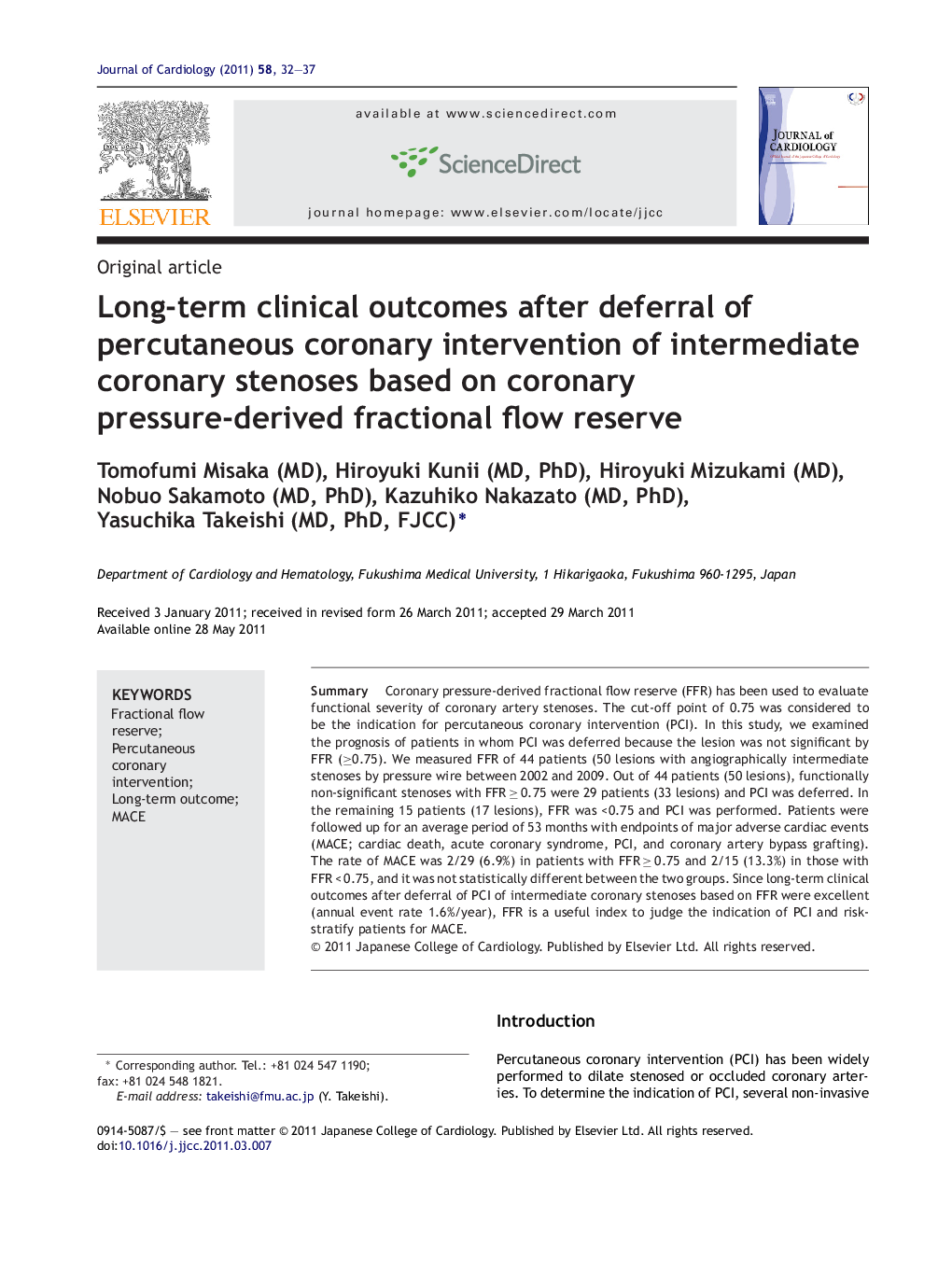| کد مقاله | کد نشریه | سال انتشار | مقاله انگلیسی | نسخه تمام متن |
|---|---|---|---|---|
| 2963390 | 1178556 | 2011 | 6 صفحه PDF | دانلود رایگان |

SummaryCoronary pressure-derived fractional flow reserve (FFR) has been used to evaluate functional severity of coronary artery stenoses. The cut-off point of 0.75 was considered to be the indication for percutaneous coronary intervention (PCI). In this study, we examined the prognosis of patients in whom PCI was deferred because the lesion was not significant by FFR (≥0.75). We measured FFR of 44 patients (50 lesions with angiographically intermediate stenoses by pressure wire between 2002 and 2009. Out of 44 patients (50 lesions), functionally non-significant stenoses with FFR ≥ 0.75 were 29 patients (33 lesions) and PCI was deferred. In the remaining 15 patients (17 lesions), FFR was <0.75 and PCI was performed. Patients were followed up for an average period of 53 months with endpoints of major adverse cardiac events (MACE; cardiac death, acute coronary syndrome, PCI, and coronary artery bypass grafting). The rate of MACE was 2/29 (6.9%) in patients with FFR ≥ 0.75 and 2/15 (13.3%) in those with FFR < 0.75, and it was not statistically different between the two groups. Since long-term clinical outcomes after deferral of PCI of intermediate coronary stenoses based on FFR were excellent (annual event rate 1.6%/year), FFR is a useful index to judge the indication of PCI and risk-stratify patients for MACE.
Journal: Journal of Cardiology - Volume 58, Issue 1, July 2011, Pages 32–37